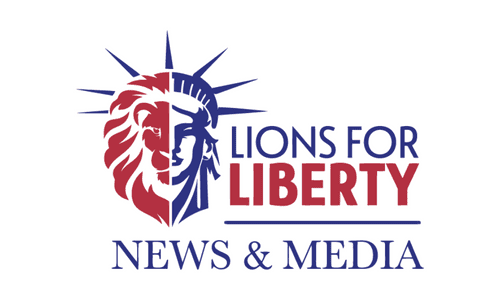CALLING ALL UNIVERSITY DONORS, STUDENTS, ALUMNI, PARENTS, EMPLOYEES, & VISITORS!
Part 1: Statement;
Part 2: Premises;
Part 3: Questions for university administrators;
Part 4: Your signature.
Part 1: STATEMENT
“Diversity, Equity, and Inclusion (DEI) has been thoroughly weighed and measured, and has been found wanting: the division is not Black and White. Accordingly, I the undersigned denounce DEI and reject the underlying theories of Critical Race Theory (CRT) and intersectionality. These ideas and initiatives actually create and sustain systemic racism, and result in a division that is, by design, both perpetual and unresolvable. DEI has effectively become a Trojan horse for Marxism, Globalism, and the erosion of liberty. The problems it claims to solve are only meaningfully addressed through other kinds of remedies. I assert that colleges and universities are ultimately better – for all of their stakeholders – when they are not guided by this divisive and destructive belief system. I therefore call on the administration to immediately disclose any financial interests that are contingent upon support of these ideas, and begin a process of terminating all DEI-based practices and programs.”
Part 2: PREMISES
- There is an extensive political and ideological spectrum of constituents of my university (or college) who are parents, students, faculty, staff, alumni, and donors who denounce racism of any kind, and yet in good conscience, being well-informed on the subject (a few critiques here), reject the premises and conclusions of intersectionality and critical theory which support the DEI initiatives that are prevalent at my university;
- Merriam-Webster defines racism as “a belief that race is a fundamental determinant of human traits and capacities, and that racial differences produce an inherent superiority of a particular race”, and I do not subscribe to that belief in any way, nor affirm any who do;
- I affirm the idea that all people, whatever their advantages or disadvantages may be, are created with equal value under heaven;
- I deny the suggestion that the heart and mind of a person, guilt or innocence of a person, privilege or lack of a person, can be rightly judged by, or attributed to, their immutable attributes;
- My university serves a constituency that is ideologically diverse and generally well-informed, and principled in the ideologies they embrace;
- The purpose of higher education is to educate, not to indoctrinate. (The definition of indoctrinate is “To instruct in a body of doctrine or principles, or to imbue with a partisan point of view”.) Universities should support this ideal with ideological neutrality, not biased “values of the university community”;
- Employees are not required to believe or affirm the ideas of critical theory, intersectionality, or gender and sexuality as a condition of employment;
- ‘Groupthink’ and ‘right think’ on socio-political matters has no place in an institution of higher learning;
- Neither properly defined term – “Conservative” nor “Progressive” – implies racism on the part of the adherent;
- Through values statements and “Belonging” initiatives, my university claims to have a vision for a climate that is safe and welcoming for all people;
- “All people” includes people across the political spectrum, both Progressive and Conservative;
- People of all races adhere to the principles of Conservatism;
- Conservatives generally believe, in good conscience, that Conservative ideas ultimately lead to better outcomes for all people – and all races – in a society, and that those ideas do not include policies that sustain racist beliefs or structures;
- Conservatives tend to maintain a reasoned position that, despite firm opinions and assertions to the contrary, DEI, CRT, & Intersectionality, though professing to be the means to positive outcomes, are not virtuous, and have the ultimate effect of making societies – and universities – worse, not better.
- Universities that claim to embrace true diversity and belonging should be a reflection of the values of their members and constituents, not a prescriber of those values.
Part 3: QUESTIONS FOR UNIVERSITY ADMINISTRATORS
With these premises established, together with the other signers of this Statement on DEI, and on behalf of the stakeholder groups below, the undersigned pose the following questions to school administrators. Authorized officials can submit responses to our liaison at your college or university, who will be identified to your administration. (Given the increasingly hostile climate around this subject, officials are advised to respect the privacy of these liaisons.):
- REGARDING DONORS / ALUMNI: Many donors have – either in part or in whole – based their decisions to donate on the ethical positions and work of their university and alma mater. Will you make a public statement to current and former donors who disagree with or even resent the goals, premises, and conclusions of CRT, DEI, and intersectionality, about the university’s intentions and rationale for embracing DEI-related programs? Will you disclose your expenditures on DEIB-related staffing, practices, and programs? If this is an initiative that your university is proud of, you should be willing to disclose your “investment” in it.
- REGARDING STUDENTS / PARENTS: Is it ever acceptable for students to be penalized, academically, for not embracing the goals, premises, and conclusions of CRT, DEI, and intersectionality? If no, what is the appropriate process for handling allegations of such behavior? What disciplinary actions are appropriate if reports of such faculty conduct are confirmed?
- REGARDING EMPLOYEES: Has it become a condition of employment for employees to believe, affirm, and / or advocate for the goals, premises, and conclusions of CRT, DEI, and Intersectionality? Should university employees still consider their workplace to be a welcoming place if they are resolved to maintain opposing beliefs, in good conscience, regarding these matters? What is the administration able to do to prevent discrimination and persecution of Conservative employees, and people of faith – of all races – whose beliefs, values, and convictions do not support the notion that Critical Theory, Intersectionality, and DEI are effective at achieving virtuous outcomes, and in fact believe that, in the long run, actually lead to destructive outcomes for all?
- REGARDING VISITORS: At colleges and universities across the country, visiting speakers deemed to be “Controversial” are given more restrictive planning protocols, and are often not given access to the same (often favored) venues as non-controversial speakers. Given that Progressivism is just as “controversial” to Conservatives as Conservatism is to Progressives, how does the university define “controversial” with respect to visiting speakers? What are the attributes of “controversial” speech? Does the administration take any responsibility for cultivating an environment – though the “protest tactics” it tolerates or the ideas it promotes – where a Conservative speaker or group would be any less safe than any other speaker or group? How does the university (or college) intend to ensure that it is a welcoming place for Conservative visitors and speakers who bring controversial messages that run contrary to Progressive viewpoints and stated “university values”? Will Conservative speakers be given the same venue access and planning protocols? In other words, will the administration make a commitment to not discriminate in any way against any organizing student group or visiting speaker?
Part 4: SIGNATURE
After signing, you’ll be redirected to a form where you can, optionally, provide evidence of “DEI-justified” bias and discrimination, and impact to your giving.
Only aggregate / summary results will be shared publicly and with liaisons. (NOTE: If you would like to formally submit these questions to your university’s administration, let us know and you can liaise between this Statement and your university’s administration‘.)
“I have a dream that my four little children will one day live in a nation where they will not be judged by the color of their skin but by the content of their character.”
— Dr. Martin Luther King, Jr.

